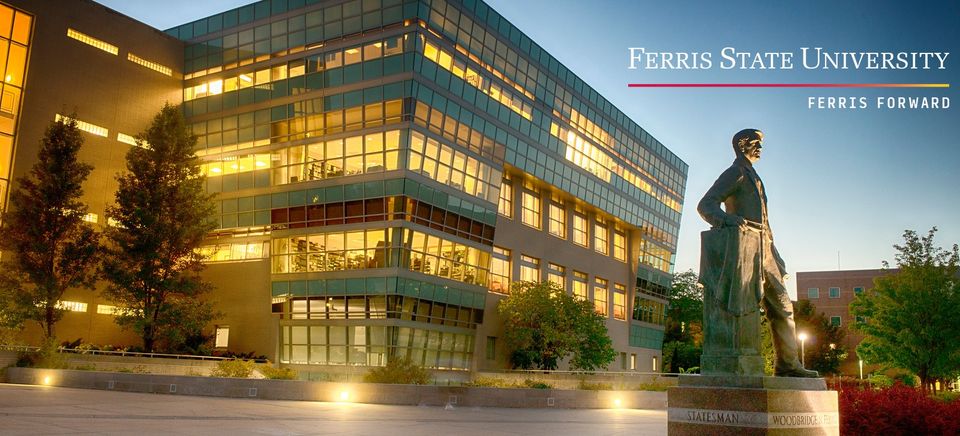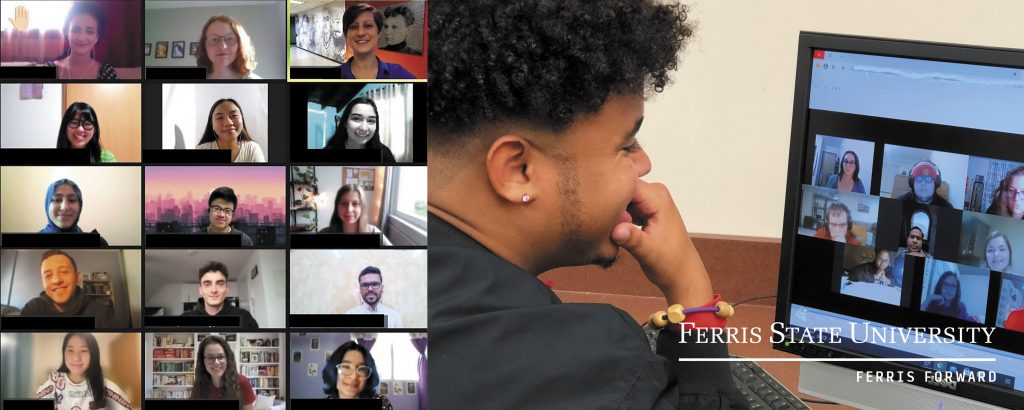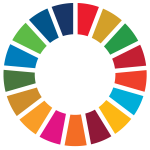Esta web utiliza cookies para que podamos ofrecerte la mejor experiencia de usuario posible. La información de las cookies se almacena en tu navegador y realiza funciones tales como reconocerte cuando vuelves a nuestra web o ayudar a nuestro equipo a comprender qué secciones de la web encuentras más interesantes y útiles.
Global Engagement e-Certificate Program
Description
Institution
Ferris State University

Organizations/areas of the university involved
Office of International Education
Country
UNITED STATES
Ferris State University, Michigan connects students from around the world to virtually explore SDGs using US National Issues forum’s Deliberative Dialogue format using a robust co-curricular scalable, replicable model.
The Global Engagement e-Certificate Program offered by Ferris State University is a no-cost, non-credit bearing, co-curricular, ten-week (6-weeks in the summer) virtual certificate program to connect students from around the world using Zoom software. Our main target group is students at Ferris State University, incoming international students, and students from partner universities and organizations around the world.
This virtual program was launched in the Summer of 2020 in response to COVID-19 global pandemic and its impact on student engagement opportunities. The goals of the program for participants include increasing their cross-cultural competency, enhancing their global awareness, and creating space and connection for them to discuss the 2030 UN Sustainable Development Goals in a meaningful way with peers from across the world through deliberation. The program uses the Deliberative Dialogues, a national format for conversation promoted by the National Issues Forum Institute, USA. Participants complete background reading/viewing to build context and background knowledge; they also research data on the SDGs in their country and one other country for comparison prior to engaging in weekly, structured conversation on the 2030 UN Sustainable goals. During weekly dialogues, participants share perspectives and discuss benefits and trade-offs of decisions made and actions taken surrounding that week’s SDG theme.
To implement the program, we first began by writing the curriculum which we built around the deliberative dialogues we were hosting on campus prior to its closing due to COVID-19. We chose the UN SDGs as the thematic focal point for the e-Certificate Program as it aligned with our current Beyond: Sustainability international initiative. Proceeding the creation of the curriculum a program guidebook was created for participants that explained program objectives, expectations, resources for dialogue preparation, and a schedule of themes and discussions. Dialogue facilitators were recruited and trained from among student workers and students in current campus global programs so that discussion are led by peers.
We plan to continue the program even when international travel becomes more normalized, and it will be adapted to align with international education modes on delivery and styles of engagement going forward.
Results and impact measured or expected
Since of May 2020, over 600 students from around the world have participated in the Global Engagement e-Certificate Program; in the three separate sessions of the program implemented (Summer 2020, Fall 2020, and Spring 2021), students from 13, 12, and 19 different countries were able to connect and share their local experience on UN SDG related issues. According to an opening survey given to participants at the start of the program, 44% of respondents felt that they were “definitely a globally minded person”, and 17.6% felt they “knew what 21st century skills are.” When completing the closing survey for the program 72.8% of respondents felt they are now “definitely a globally minded person”, and 63% “know what 21st century skills are”. In addition, 68.5% reported gaining an understanding of the UN SDGs, and 59.3% reported learning on how to have difficult conversations.
Connection with the SDG framework
Designed for diverse and far-reaching peer groups to connect, share perspectives, and inspire ideas that can be taken back to each student’s local experience, the e-Certificate Program contributes to the ESDGs by fostering in participants key competencies such as critical thinking, self-awareness, reflection, curiosity and learning skills, cross-cultural skills, social responsibility, and communication; providing the opportunity to learn about and understand the UN SDGs’ purpose and importance, as well as key sustainable development issues such as global health, environmental preservation and urban development, and social justice; creating a space for students to practice and become comfortable having difficult conversations on complex topic so they can more readily use these discussions in their local and global endeavors. Student feedback on the program has provided us with testimonies of student’s intentions to carry forth what was learned through the program into their local school club, community organizations, and professional careers.
Barriers and follow up
As the program was created an implemented during the early days of the global pandemic, there was limited capacity to devote time and resources in order to develop and implement the program. It was decided adapting the deliberative dialogues activity that was already happening on campus prior to COVID could be structured and unified using a curriculum surrounding the SDGs; this would create a solid foundation for a virtual program to have a high impact but require relatively low amounts of resources to accomplish. Utilizing free Zoom software, reaching out to students using internal avenues and external partnerships and relationships, and developing facilitator training among students familiar with the deliberative dialogue process helped to minimize capacity required to start and administer the program.
Transferability of the initiative
If the number of facilitators can be matched proportionately with student participant numbers (allowing for small group discussions), the program can be scaled up to higher numbers of student participants. We intend to develop a facilitator training model to expand our pool of facilitators internationally to accommodate growth and scalability of the program. Utilizing video conferencing technology and the deliberative dialogues model, this program’s model is transferable to other higher education institutions in other geographical locations.
Education 4 SDG funciona gracias a WordPress


